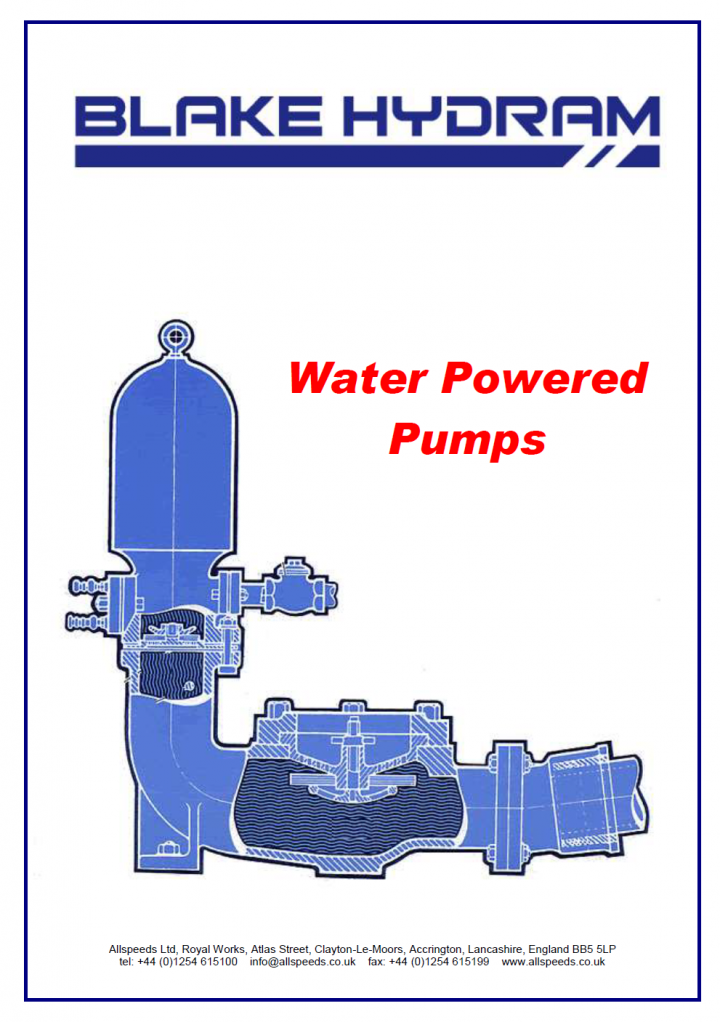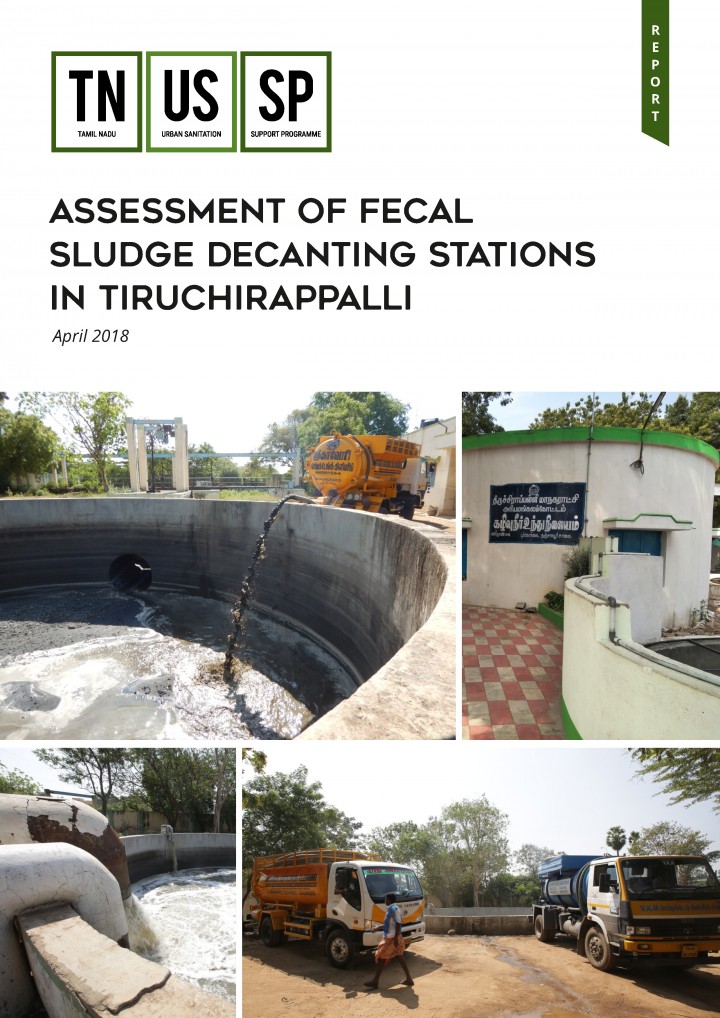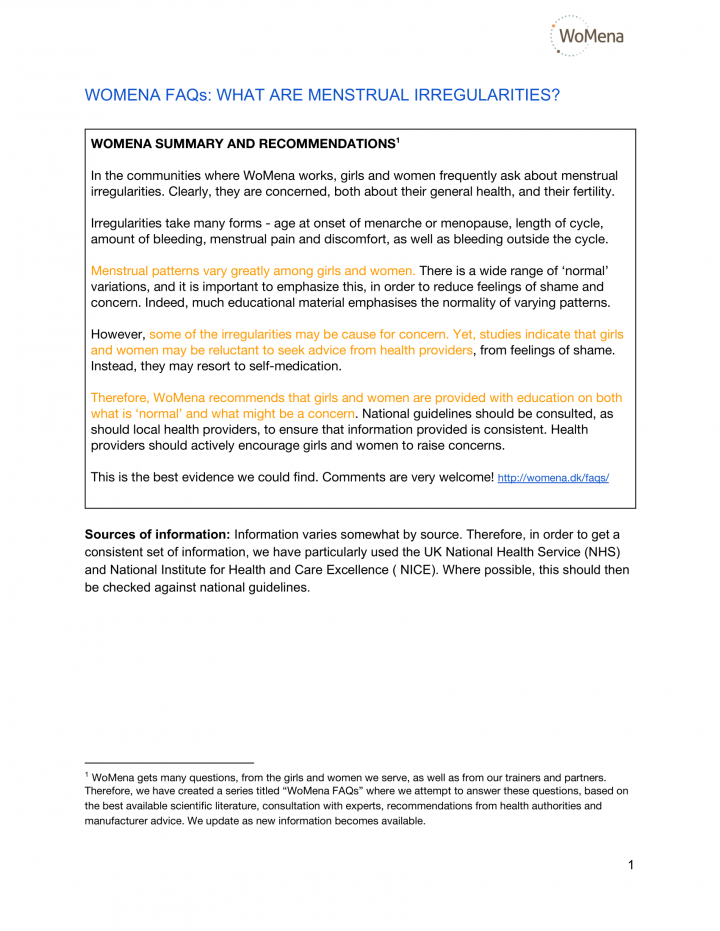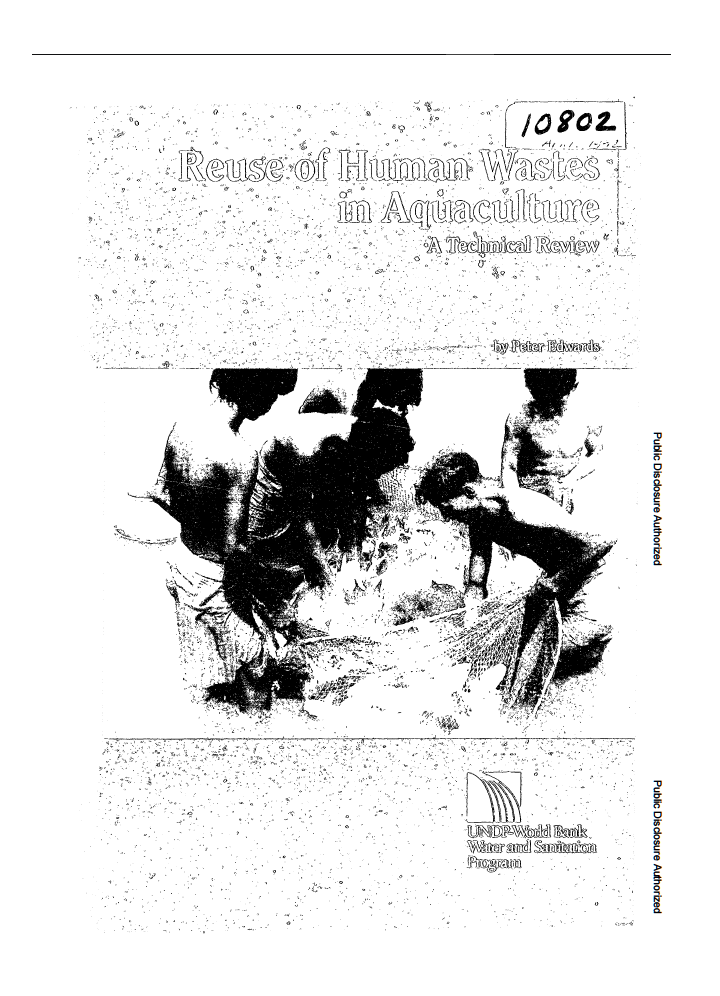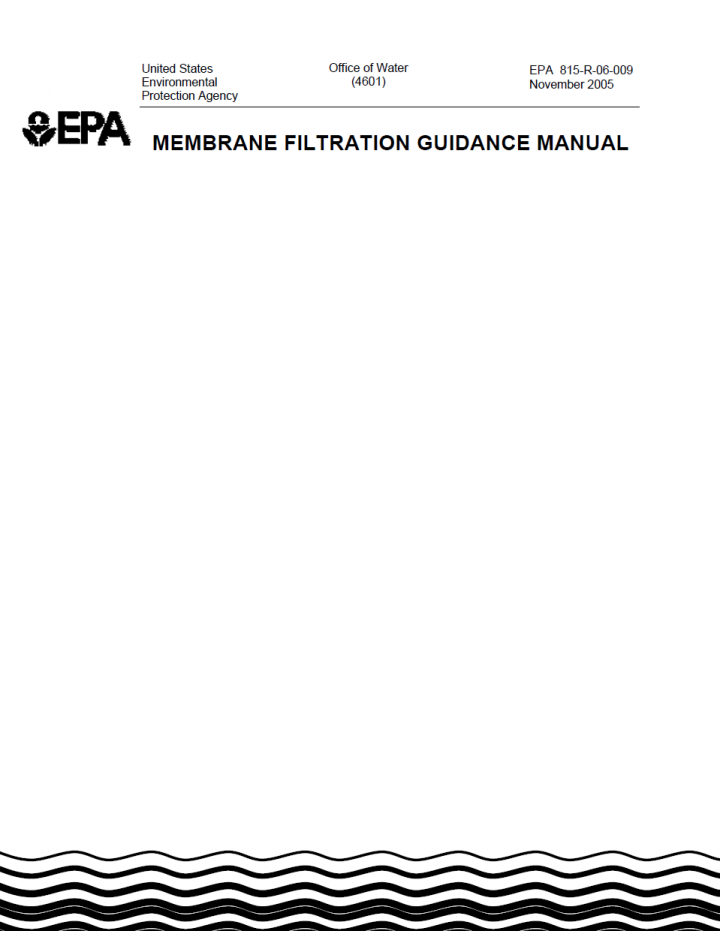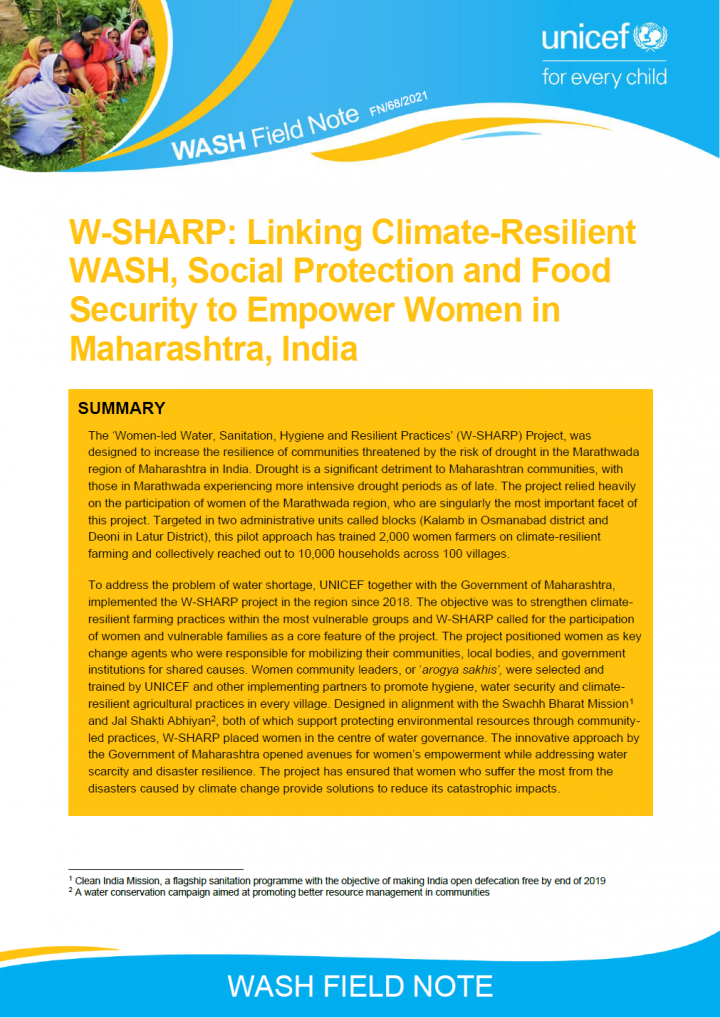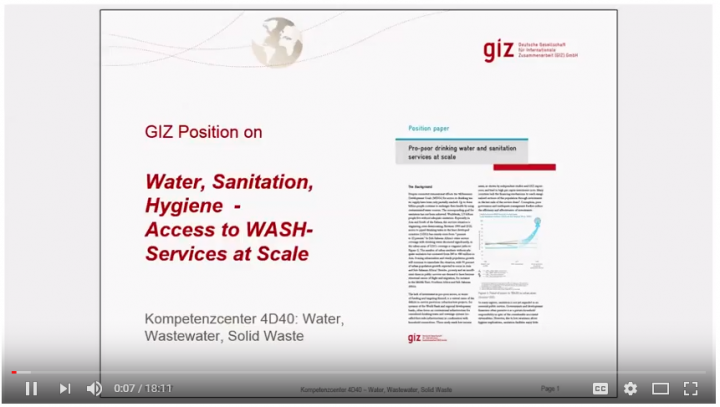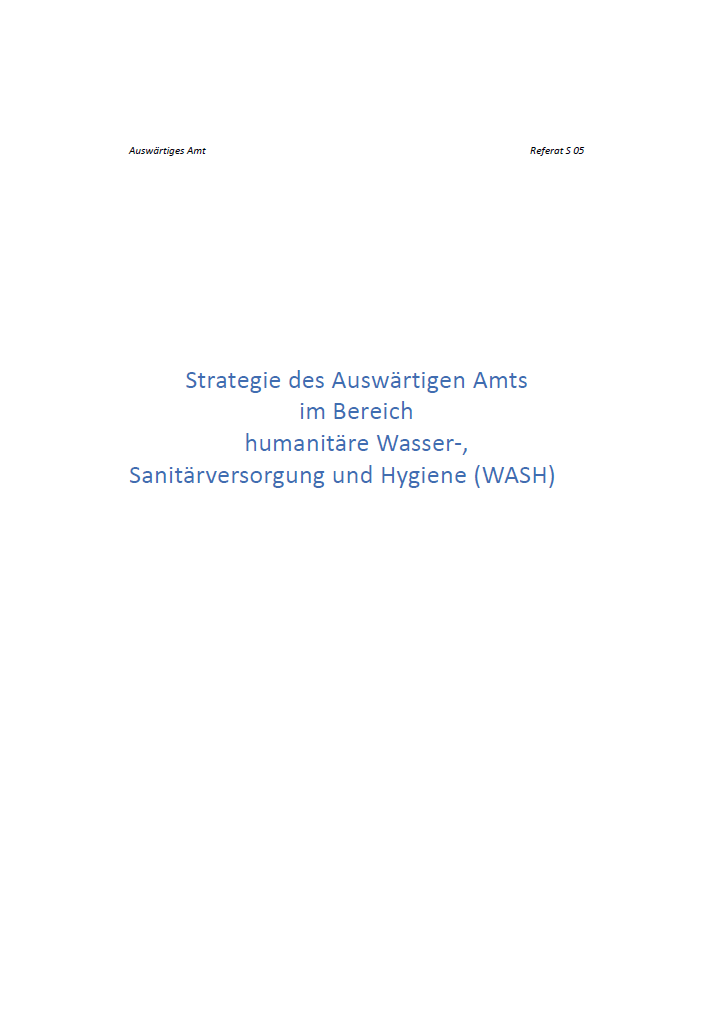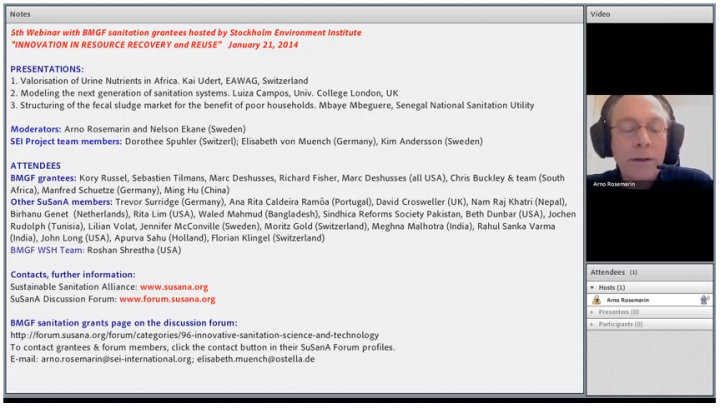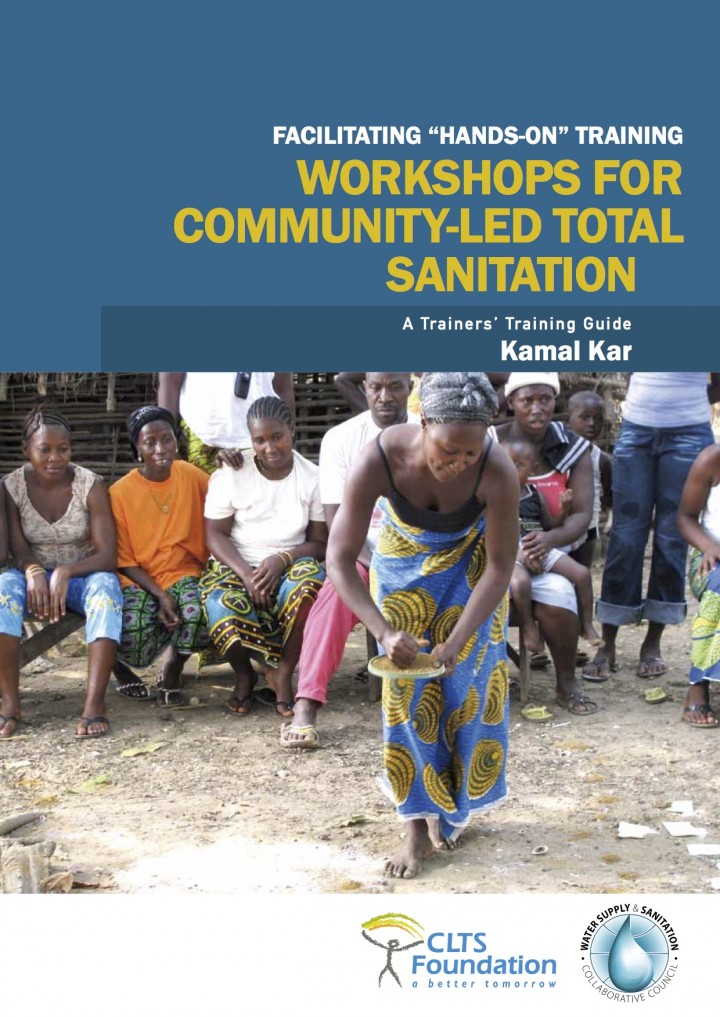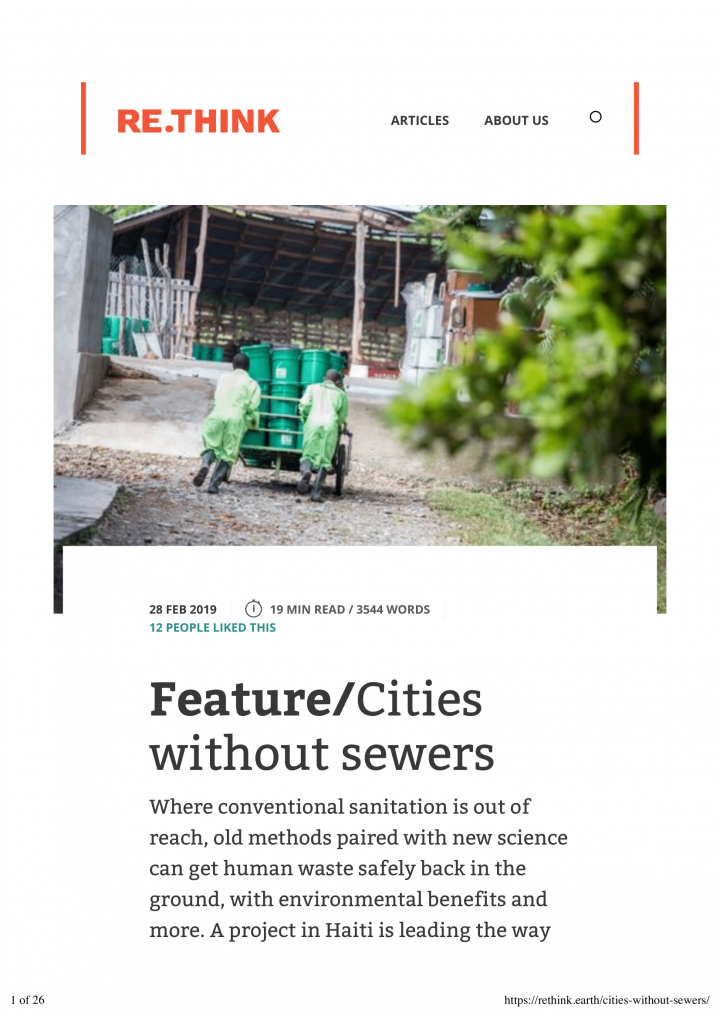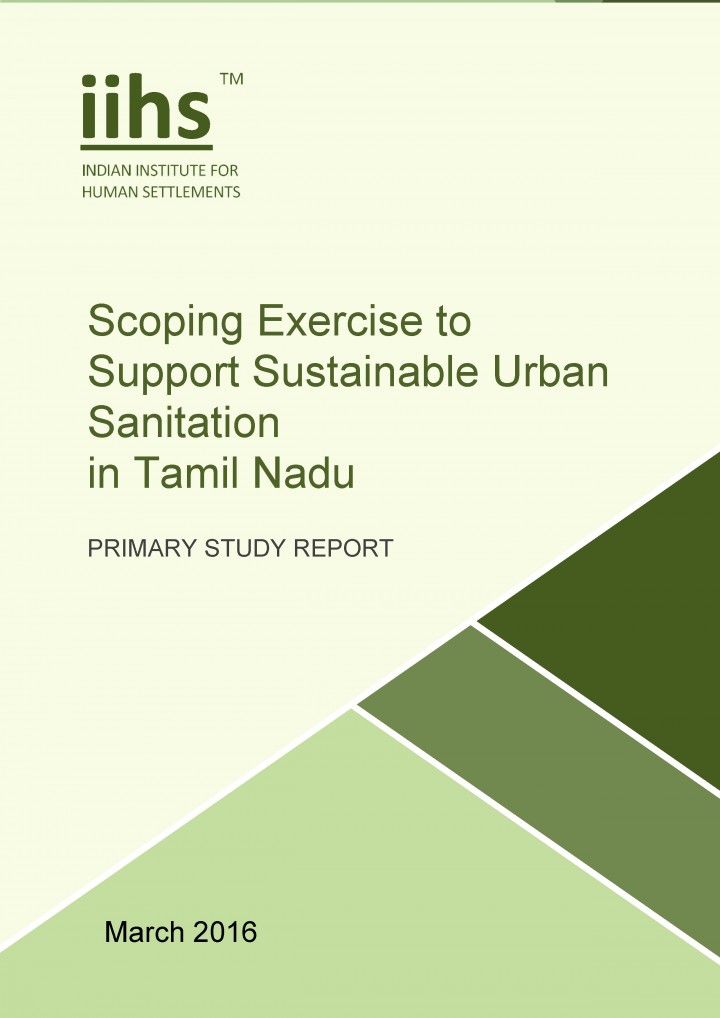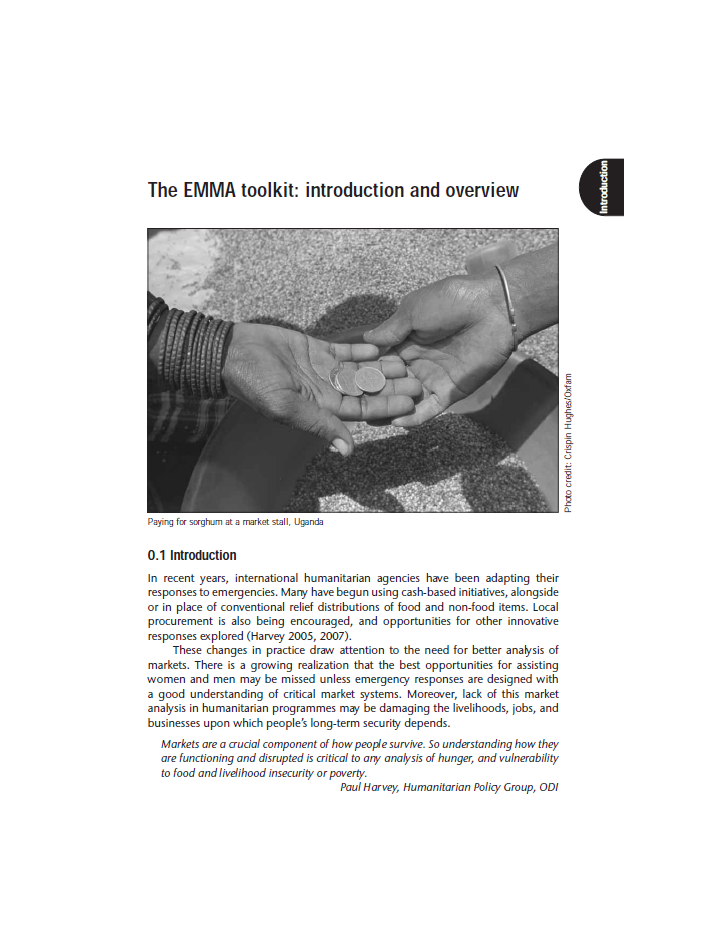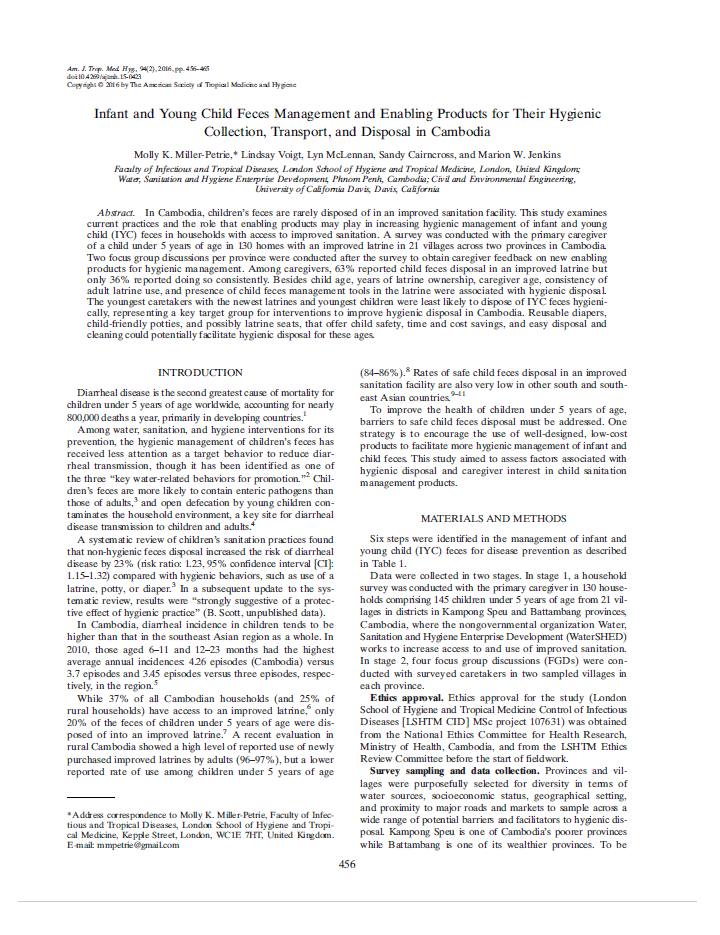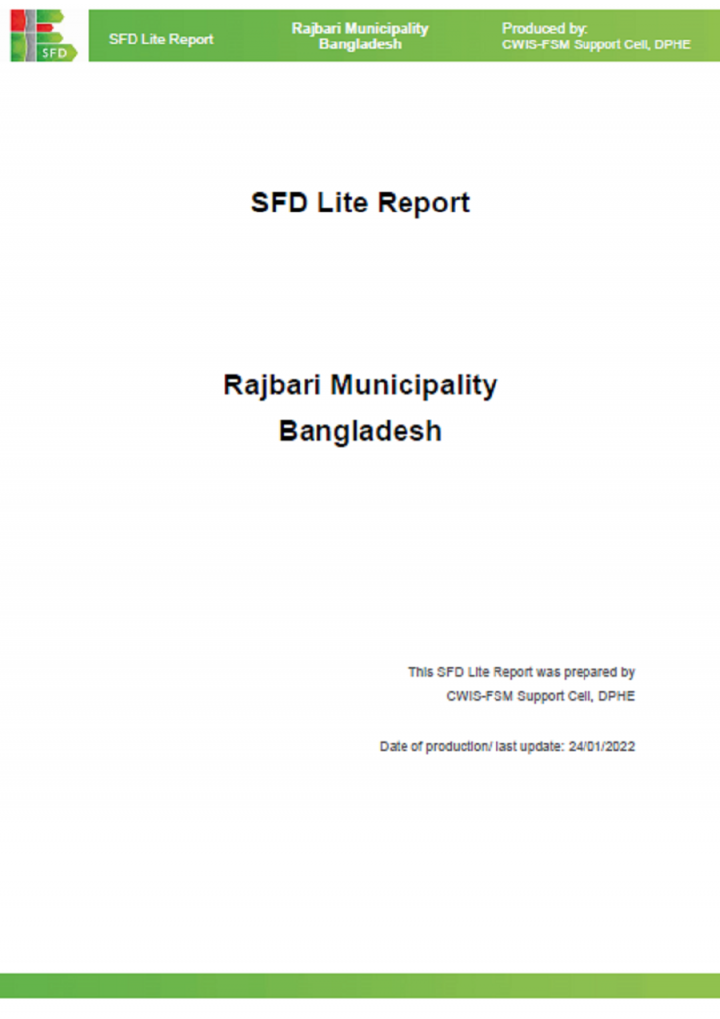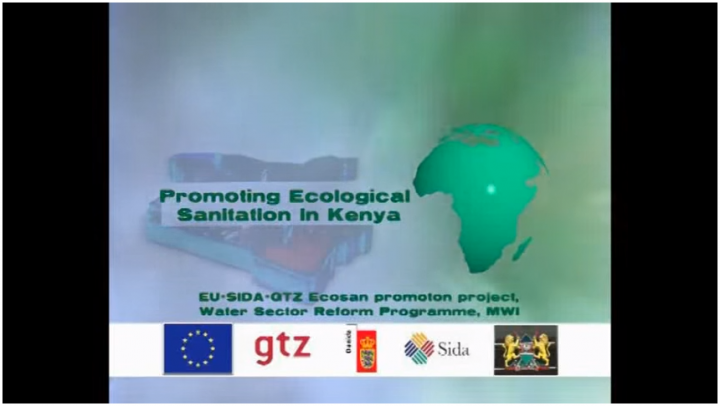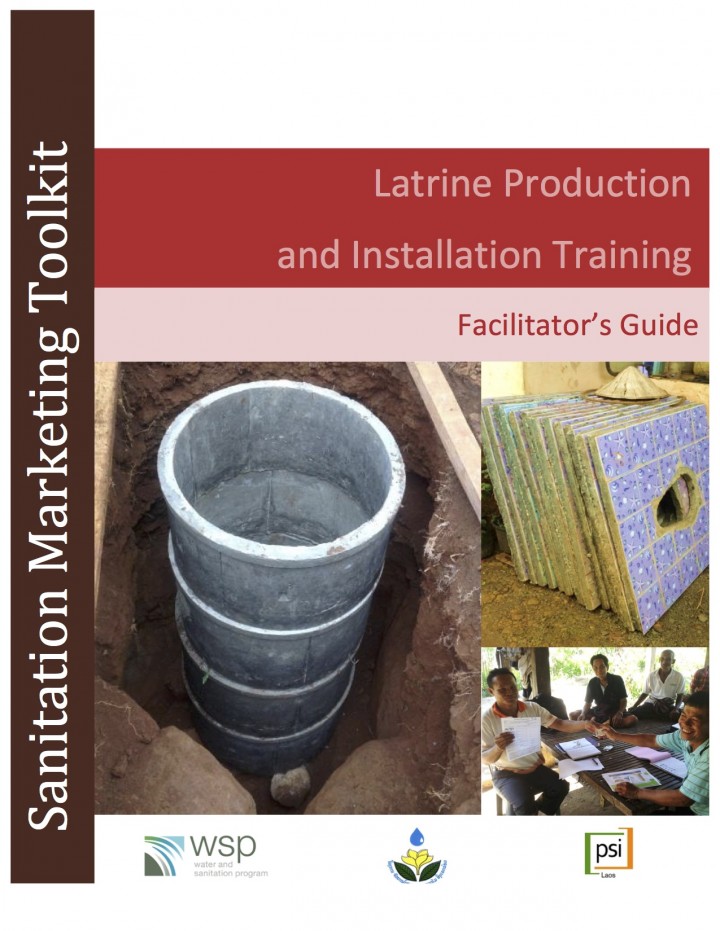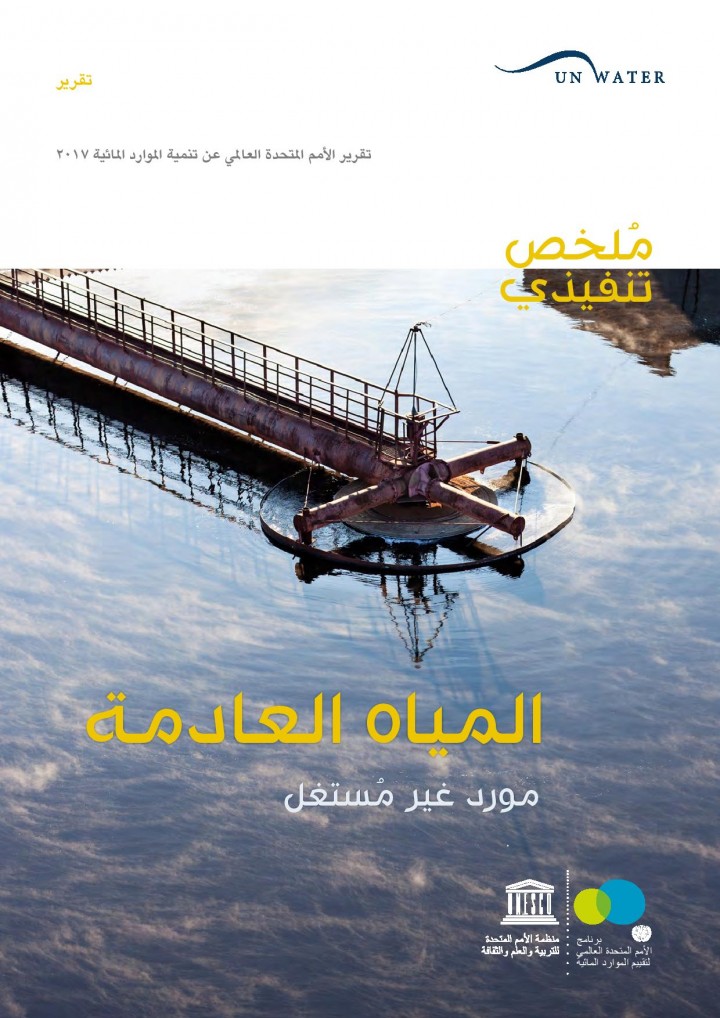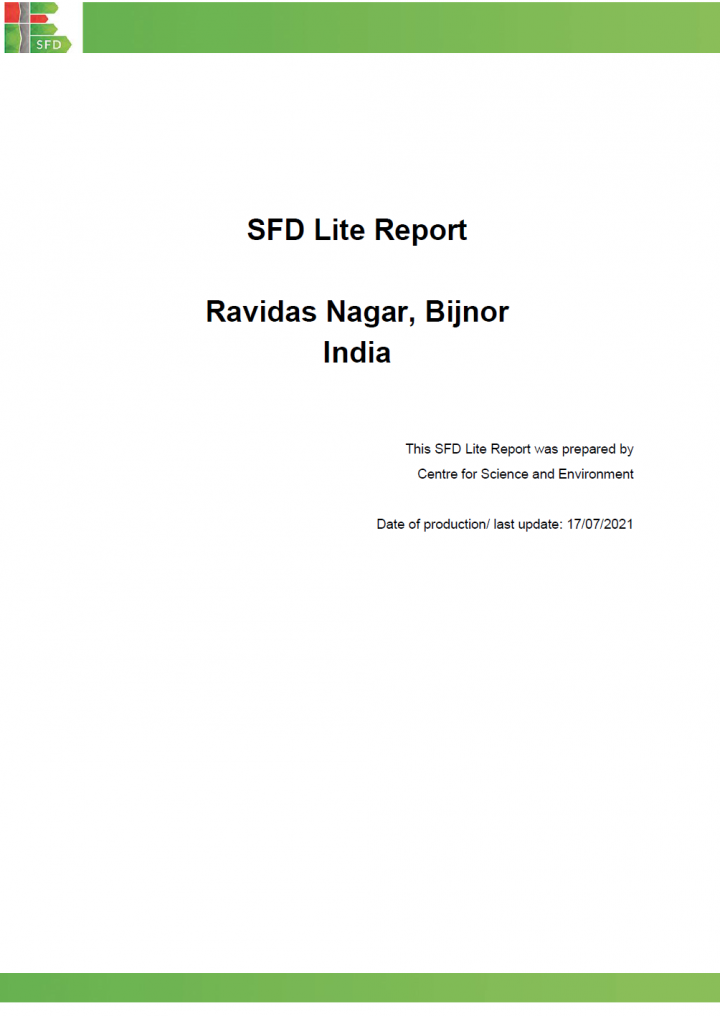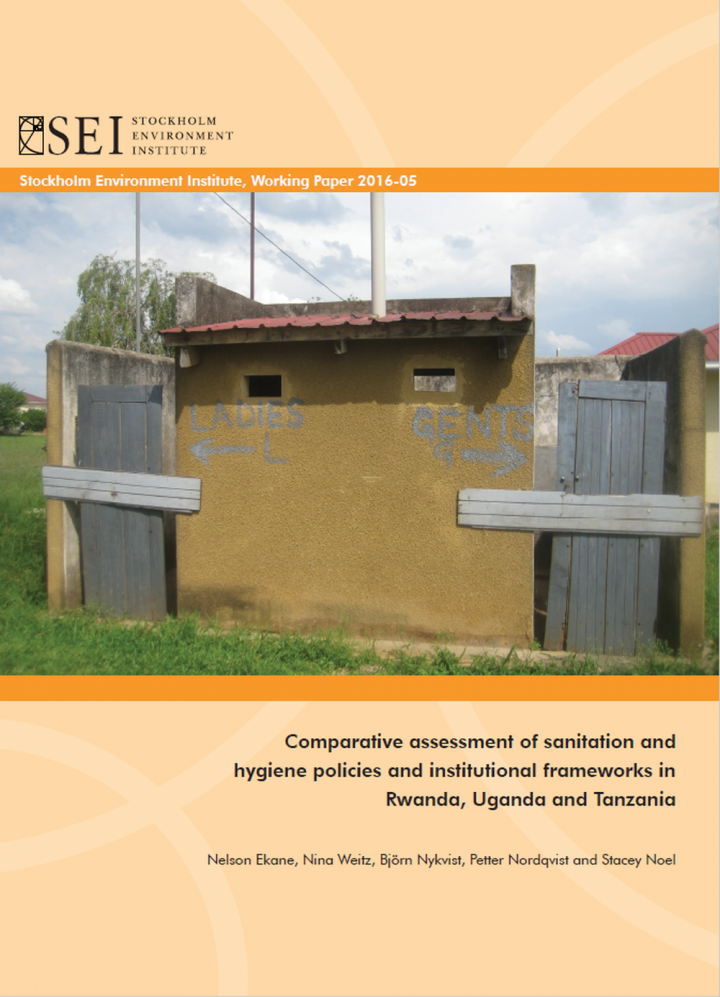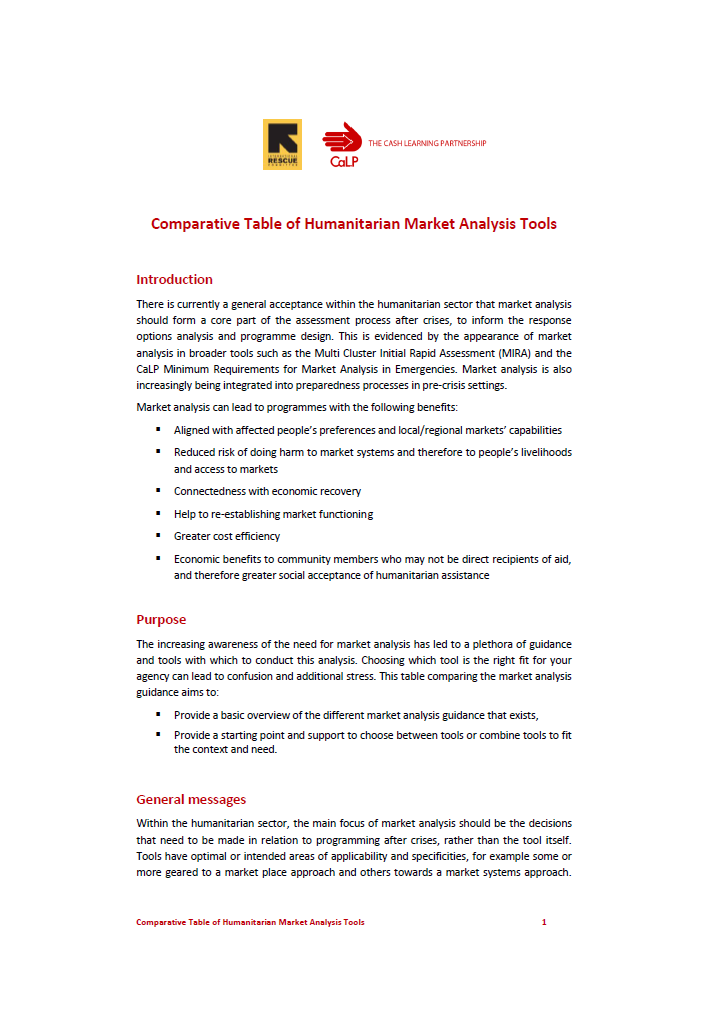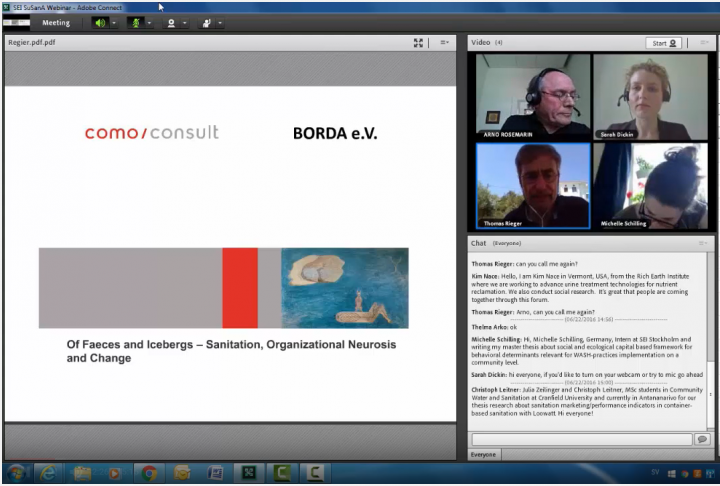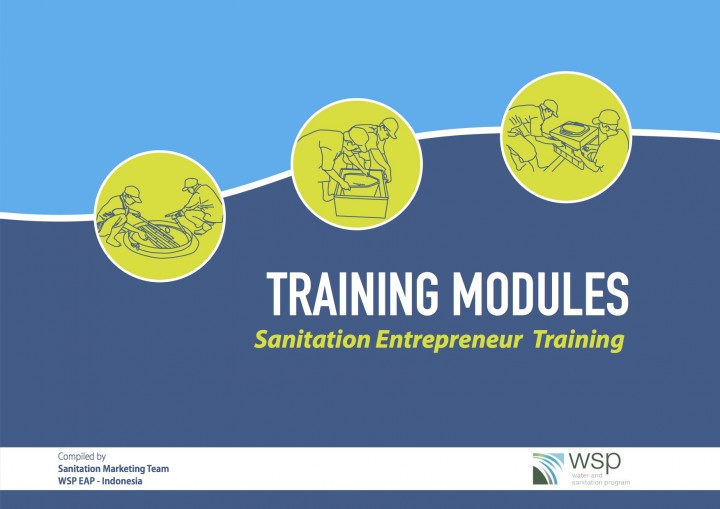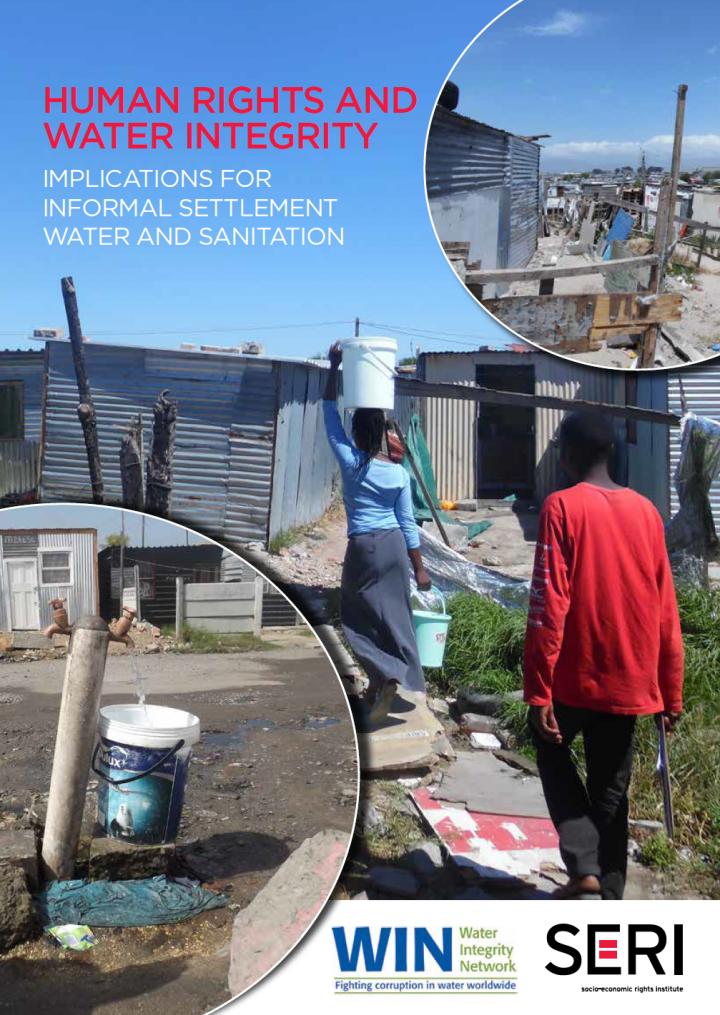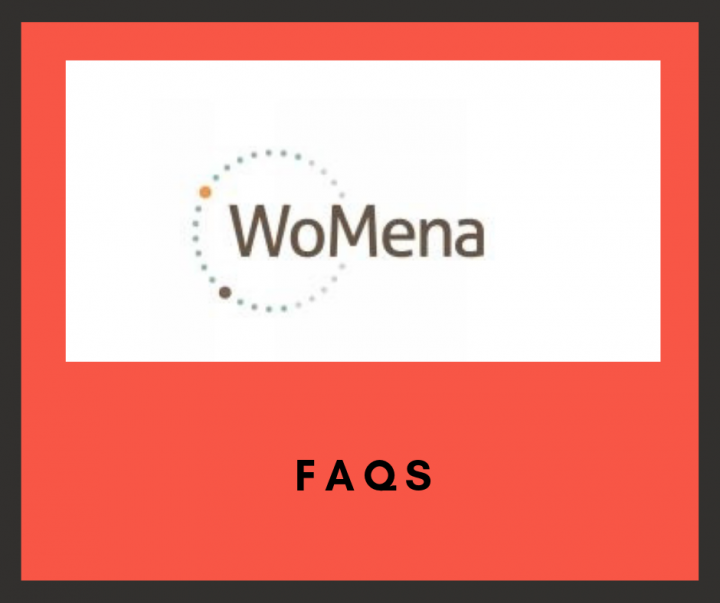Searching for information on Sanitation Workers?
The Sanitation Workers Knowledge + Learning Hub is the best source for all current news, trends, articles and updates on sanitation workers rights around the world.
The modern Hydram uses a very old principle of physics in a simple but effective way to
move water from a stream or river to places where it is most needed. Where there is suitable
clean water available, it can provide supplies to remote houses or communities, allow
irrigation of inaccessible areas and maintain feed water for stock in areas at a distance from
water sources.
The use of a …
The Sewage Treatment Plant at Tiruchirappalli has been used for co-treating fecal sludge by utilizing pumping stations as receiving/decanting stations. An assessment was carried out at the decanting stations in Tiruchirappalli with an objective to check the adequacy of existing facilities, identify areas of improvement and develop a methodology for feasibility assessment for converting pumping …
In the communities where WoMena works, girls and women frequently ask about menstrual irregularities. Clearly, they are concerned, both about their general health, and their fertility. Irregularities take many forms - age at onset of menarche or menopause, length of cycle, amount of bleeding, menstrual pain and discomfort, as well as bleeding outside the cycle.
Menstrual patterns vary greatly …
New national goals in wastewater treatment in the United States of America place strong emphasis on the use of natural systems and improved biological processes. These goals encourage sewage reuse through agriculture, forestry, and aquaculture (Duffer 1982). However, the cultivation of fish in wastewater has been of interest in the United States for only a short time: from a practical point of …
The purpose of this guidance manual is to provide technical information on the use of membrane
filtration and application of the technology for compliance with the Long Term 2 Enhanced
Surface Water Treatment Rule, which would require certain systems to provide additional
treatment for Cryptosporidium. The requirements of this rule, as they relate to membrane
filtration, are summarized in …
The ‘Women-led Water, Sanitation, Hygiene and Resilient Practices’ (W-SHARP) Project, was designed to increase the resilience of communities threatened by the risk of drought in the Marathwada region of Maharashtra in India. Drought is a significant detriment to Maharashtran communities, with those in Marathwada experiencing more intensive drought periods as of late. The project relied …
Zugang zu sauberem Trinkwasser und eine hygienische Abwasserentsorgung gehören zu den Menschenrechten und den menschlichen Grundbedürfnissen, die in humanitären Notsituationen gewährleistet werden müssen. Fehlende Abwasserentsorgung und mangelnde Hygiene stellen gerade für ohnehin vulnerable Gruppen ein erhebliches gesundheitliches Risiko dar. Humanitäre Maßnahmen im Bereich Wasser-, …
"Resource recovery and reuse" - a discussion with three Bill & Melinda Gates Foundation grantees. Hosted by: Stockholm Environment Institute and the Sustainable Sanitation Alliance (SuSanA) on 21 January 2014. This webinar has been recorded in 4 parts. See links below for Part 2-4.
The three papers given were as follows (see separate video clips):
1) VUNA - Valorisation of Urine Nutrients in …
The Handbook on CLTS describes the basics of CLTS facilitation and is essential and useful material for the field facilitators. This guideline, on the other hand, is written with a focus to meet the requirements of the trainers of CLTS facilitators, and of future CLTS trainers who are not yet experienced CLTS facilitators. The guide can also be used by trainers who wish to train trainers of CLTS …
With a view to scope the tasks under the Tamil Nadu sanitation mission, IIHS carried out a scoping exercise in 2015 to gain an in-depth understanding of the current arrangements and practices in the full cycle of sanitation. The study assessed a range of issues across the sanitation cycle including design and construction practices of on-site sanitation systems, septage collection and waste …
Emergency Market Mapping and Analysis (EMMA) is a set of tools (this toolkit) and guidance notes (the reference manual on CD-ROM). It encourages and assists front-line humanitarian staff in sudden-onset emergencies to better understand, accommodate, and make use of market systems. It does not offer a simplistic blue-print for action. However, EMMA does provide accessible, relevant guidance to …
In Cambodia, children’s feces are rarely disposed of in an improved sanitation facility. This study examines current practices and the role that enabling products may play in increasing hygienic management of infant and young child (IYC) feces in households with access to improved sanitation. A survey was conducted with the primary caregiver of a child under 5 years of age in 130 homes with an …
Rajbari municipality, the district headquarter of Rajbari district is situated in Dhaka Division, Bangladesh. It is located 110 km from the capital Dhaka. It is beside the Padma River, and it is well connected with road and water. Rajbari Municipality was established in 1913 and was recognized as Town Committee. Later in 1923, it was renamed as Rajbari Municipality. It is one of the oldest towns …
This project was financed by EU, SIDA and GTZ (BMZ). It had been implemented by the EcoSan Promotion Project of the Deutsche Gesellschaft für Technische Zusammenarbeit (GTZ) in 2007 to 2010. More than 800 toilets, so called Urine Diversion Dehydration Toilets (UDDTs) were constructed with CBOs and beneficiaries at households and at schools in rural and peri-urban areas. A different technology …
Ravidas Nagar is a small Low-Income Group (LIG) settlement in Bijnor City (geographical coordinates 290 9’ 0” North and 780 16’ 0” East ) in the state of Uttar Pradesh, India. It is located within Ward No. 2 of Bijnor City (the city has a total of 25 wards). As per Census of India, 2011, Ravidas Nagar was part of Ward No. 1; however, in the year 2016, it was reconstituted as a new ward. …
This assessment finds that the policies in Rwanda, Uganda, and Tanzania meet many of the recommended criteria, but are still lacking key aspects to adequately cater for sustainability of services and functionality of facilities. Further, policies should reflect the needs and preferences of people. This is usually not the case because policies are very ambitious and hard to fully translate to …
The increasing awareness of the need for market analysis has led to a plethora of guidance and tools with which to conduct this analysis. Choosing which tool is the right fit for your agency can lead to confusion and additional stress. This table comparing the market analysis guidance aims to: 1) Provide a basic overview of the different market analysis guidance that exists, 2) Provide a starting …
This manual for using and developing modules is intended as a reference for facilitators of sanitation entrepreneur training courses. This manual contains the curriculums for the modules that form the basis for design of the training modules. It also contains technical details for delivering the topics for each phase. Using this manual, the facilitator should have a firm understanding of what is …
Despite clear international law on the human right to water, and widespread recognition of this right, almost one billion people still do not have adequate, affordable and safe access to water and 2.4 billion people do not have access to safe sanitation.
The world’s urban population is increasing and by conservative estimates, rates of growth will continue well into the middle of this …
WOMENA SUMMARY AND RECOMMENDATIONS
Many women develop urogenital infections, such as bacterial vaginosis or yeast infections, at some point in their life. Prevalence rates of 20-30% or more have been documented in both high-, middle- and low-income countries. Many infections are asymptomatic, meaning that those who have the infection do not know.
Menstruation is a normal, physiologic …

